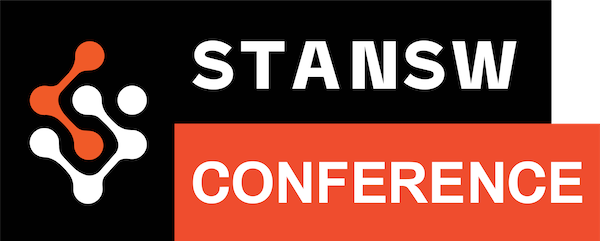
Monday 17 - Tuesday 18 June 2024
Venue Host: Macquarie University
Call for Workshop Abstracts:
STANSW Annual Conference 2024: Hands-on Science
Share Your Expertise and Empower Science Educators
Submissions are due by: 22nd March 2024
The Science Teachers Association of NSW invites you to submit workshop abstracts for our upcoming STANSW Annual Conference 2024: Hands-on Science. This two-day event will take place in June in Sydney Metro and provides a platform for science educators to share their expertise and insights in the context of the new NSW Science Syllabus implementation.
We are seeking workshop proposals that align with the conference theme of Hands-on Science and address the following K-12 science and science and technology areas:
Workshop Themes
K-6 Science and Technology
- Focus on engaging and inquiry-based activities that align with the new syllabus outcomes.
- Guide participants through the steps of writing an experiment report, including introduction, materials, procedure, results, discussion, and conclusion.
- Provide guidance on planning and sequencing science lessons and activities.
- Share strategies for implementing safety procedures and minimizing risks in the classroom.
- Explore opportunities to integrate science with other curriculum areas, such as English, mathematics, and technology.
7-12
- Navigating the new NSW Science Syllabus: Share your insights and strategies for implementing the new Syllabus, including understanding the Skills and Content, incorporating hands-on activities, and utilizing NESA's resource samples.
- Enhancing teaching skills for differentiation and content sequencing: Provide practical guidance on differentiating instruction, sequencing content effectively, and tailoring lessons to meet the needs of diverse learners.
- Exploring the New Depth Studies ST 4 & ST 5: Discuss the intricacies of student research projects versus Depth Studies, offering strategies for implementation and highlighting the benefits of each approach.
- Workshops for beginning teachers: What in your teacher toolkit can you share with early career teachers? Which practical's have been the most engaging and have always ‘worked’? What management and scaffolding do you wish someone had shared with you early on?
Workshop Format and Duration
Workshops should be interactive and engaging, incorporating hands-on activities, discussions, and opportunities for collaboration. The duration of each workshop should be approximately 30-60 minutes. Shorter TeachMeet style sessions (20mins) are also being offered.
Submission Guidelines
Please submit your workshop abstract by 22nd March via: https://www.cognitoforms.com/STANSW/_2024SpeakerSubmissionForm
Your abstract should include the following information:
- Workshop title – Short, concise, and informative
- Presenter name(s), affiliations and abstract -max 100 words in total, written in the third person.
- Workshop description -concise summary, max 200 words
- Learning outcomes for participants
- Alignment with conference themes and target audience (new teachers, experienced teachers, or both).
Selection Criteria
Workshop proposals will be reviewed and selected based on the following criteria:
- Relevance to conference themes and target audience
- Clarity and coherence of the proposal
- Originality and innovative approaches
- Potential impact on participants' teaching practices.
Benefits for Speakers
Selected workshop presenters will receive the following benefits:
- Complimentary conference registration
- Opportunity to showcase your expertise and share your knowledge with fellow science educators
- Recognition and promotion within the STANSW community
Seize this opportunity to make a lasting impact on the future of science education in NSW. Submit your workshop abstract today and join us for the STANSW Annual Conference 2024: Hands-on Science!
Submit via the link: https://www.cognitoforms.com/STANSW/_2024SpeakerSubmissionForm
Submissions are due by: 22 March 2024
Please address enquiries to the project manager: [email protected]